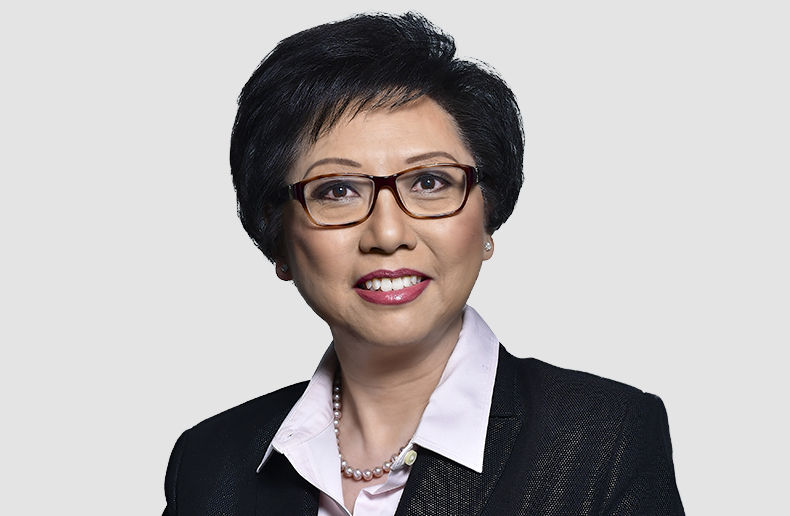Sun Life’s Audrey Chiang is the first woman in the company’s history to be inducted into its hall of fame. She’s won multiple industry awards, even qualifying for the Million Dollar Round Table (MDRT) conference in her very first year in the business.
At 71, Chiang intends to start transitioning out of her business in about two years. Her successor is named, trained and an integral part and partner in her business. When the time comes to transition the business, although she plans to scale back her long days considerably, she says she intends to stay on as an assistant.
“Why would I retire?” she laughs. “Longevity means the more you do, the better you are. There is a lot to learn in the business. Helping clients is something I find very satisfying.”
Her career story over time is a fascinating study. And while certain elements may have changed over the years – she says today digital has overtaken a lot of cold canvassing efforts that new advisors need to engage in – there are qualities and business practices which remain as important, if not more so today, than they were in years past.
A positive attitude
Notably, Chiang is a pretty positive person. This positive attitude, coupled with an open mind, a willingness to learn and the drive to work hard, she says are the base qualities that are needed to do well in the profession.
“Without this, it is difficult,” she says. “You must like the business. It’s not a job, it’s a business.”
And while agents and advisors new to the business may not know how to approach people initially, she says the more you do it, the better you will become – a theme which was repeated a few times during Chiang’s conversation with the Insurance Portal.
“I had no background in insurance (Chiang graduated from McMaster University with a BA in economics in 1977 before joining the industry as a representative of Prudential England.) I made it because I wanted to make it. I wanted to do something that I’d never done before,” she says, noting and acknowledging that the effort is not an easy one.
Nothing is easy
When presented with a case or client not interested in what she has to say or offer, she says this doesn’t mean the advisor did a bad job. “We have ups and downs. Nothing is easy in life. Did I do a bad job? No. Keep on trying. Whatever is done, leave it on the side. Sleep on it and the next day you’ll be better.”
Also notable, and perhaps speaking to her flexibility, is Chiang’s longevity in the face of multiple corporate changes. Although she started in the business working for Prudential Assurance Company, this company was later sold to Mutual Life in 1995. In 1999 Mutual Life demutalized and changed name to Clarica. Eventually , Sun Life purchased Clarica in 2003 and Audrey became a Sun Life advisor ever since.
During her tenure, Chiang has also seen the development of markets for products like critical illness and the introduction of investments and wealth management in the late 1990s.
“The wealth business in the early 2000s, that was a big market for me because I was able to leverage my own clients and talk to them about investments. It helped me in developing my wealth business. It’s a big change in the market over the last 40 years,” she says.
Financial planning, she adds, is also what reveals a clients’ needs to the advisor. “Developing the financial planning for each client generates information about what the client needs – find out,” she says. “The young advisor should work hard on doing good planning for the clients to get good leads.”
And although digital marketing has largely taken the place of cold canvassing, she encourages those starting out to talk to anybody and everybody. Give yourself the opportunity to learn the business by making mistakes. It doesn’t matter. If you say something that people don’t listen to, go another direction.”
Chiang’s career path may also be a good blueprint for those starting out. Fresh out of university in 1977, Chiang spent a lot of time cold canvassing, approaching anyone she could, before developing her niche serving the Chinese community. “They were very willing to talk to me,” she says.
Centres of influence
Following that, she branched out into serving business owners, as the family market in her early days did not provide as much income. Later she developed centres of influence by referring her own clients to professionals, who eventually, in turn, began sending business in her direction. Chiang says it takes at least three to five years to establish a market in this manner.
Digital marketing also helps the advisor broadcast her presence to the public. Another major move, mid-career Chiang began joining clubs and volunteering in the community.
“They call me the Sun Life lady,” she jokes, adding that it is not the time to make sales, but community work is excellent for getting an advisor’s name out. “I don’t go out to make sales,” she says, adding that she will also ask the company for assistance and sponsorship. “Knowing that we are willing to help, that’s a good way to do community work and get your name out.”
Throughout this trajectory, she says she is also always learning new things given any opportunity to do so. “I never stop learning. Seminars, anything that will help me in my business I will go or listen,” she says.
For those starting out in business, she recommends partnering with older advisors to learn what works. “Working with a senior advisor is very important because they have the experience,” she says. “There are lots of advisors who are aging too. You can help them develop their market because that senior advisor may have thousands of clients that they don’t have time to call or work with.” In addition to working with a senior advisor, she says joining a team can also be motivational. (Chiang has two admin assistants, one junior representative and her business partner working in the practice.)
Find a niche
She also recommends doing the digital marketing that younger advisors are often innately good at (put out your own reports and talk about things, she urges), while also making a business for themselves wherever they are already active in the community – in teacher’s groups, by coaching children’s teams, going to the gym, church or participating community events. “Whatever you’re good at, try to find a niche,” she says. “I like businesses and I like professionals. Those are the people I want to go after. Then you try your best, right?”
In short though, she says it’s necessary to work hard. “You cannot wait for the clients to come in.”
Finally, she encourages those in the business to rely on their respective companies for resources – learn from them where possible and engage in the different programs being developed, particularly those which address client needs.
She also says follow-up on every warm lead offered. In her case, the company’s group retirement service department is a good source of leads – retirees mostly who need help settling their retirement pension monies.
“That is very important. Retirement is a critical part of a person’s life. They rely on the money to live on for a long time. We have to give them good advice,” she says. “You don’t need to make up anything. Be yourself and help the client.”
Advocate for the profession
Industry veteran, Sun Life’s Audrey Chiang has seen a lot of change over the course of her career – from insurance sales being a cold-calling and cold-canvassing exercise to today’s holistic planning that incorporates much of, if not the entirety of a client’s financial affairs.
“Wealth and health. We look at both sides,” she says. “We have to advocate (for that understanding).” She points out that financial planners today are coaches. They are obligated to be thorough. They are also generally not interested in a one-and-done conversation about product.
“This is very important: We need to portray ourselves as advisors. Teach clients about the value of an advisor and let them understand that we work with them for a lifetime,” she says.







